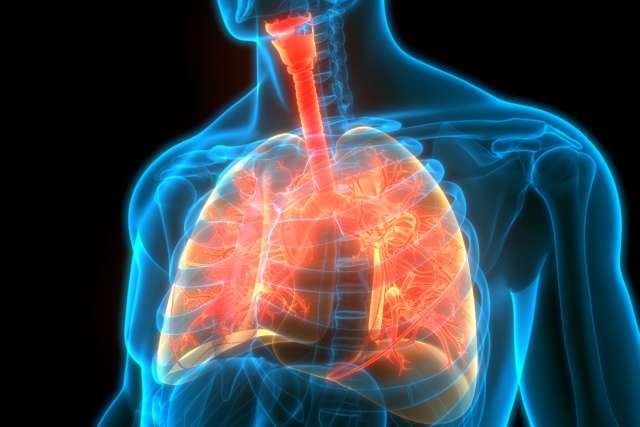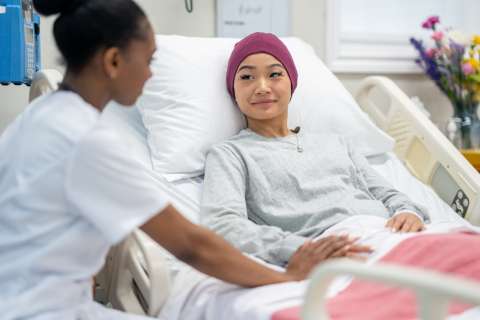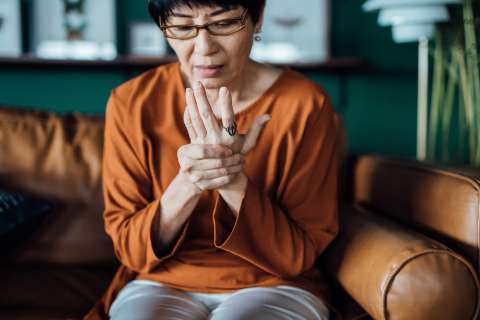UCLA Health patients who are struggling with lung function after contracting COVID-19 are about to experience the healing power of music through new breathing and singing workshops with LA Opera.
The company’s singers will lead a free, six-week Zoom course, starting May 21, with exercises and activities designed to support breath control and mindfulness. The pilot program is open to a limited number of qualifying patients who are receiving pulmonary rehabilitation at UCLA after undergoing intubation for COVID-19 or who are suffering from long-haul COVID.
“The whole idea is that singers do a lot of the same breath exercises that we do in pulmonary rehab, and then some,” said Ellen Wilson, PT, executive director of therapy services for UCLA Health. “It’s really meant to be an adjunct to whatever formal treatment they’re getting and a fun way to work on lung capacity without it being so clinical.”
Stacy Brightman, PhD, vice president of LA Opera Connects, which oversees community engagement and education, said the course will use the same kinds of breathing and visualization exercises done by opera singers, who are known for respiratory endurance.
“The only instrument an opera singer has is their body,” Brightman said. “It takes years and y

ears of that development of your instrument. It essentially is like being an Olympic athlete.”
The courses will be taught by Rondi Charleston of Rondi Charleston Studios and singers Michele Patzakis and Nandani Sinha of LA Opera. Each class will begin with warm-up and mindfulness techniques, followed by breathing exercises with visualization.
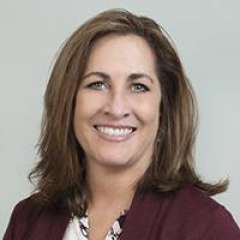
“Imagine a technique where we’re saying, ‘Close your eyes, relax your shoulders down, lean in slightly and breathe in that rose,’” Brightman said. “It’s visualization that will help you achieve exactly what your therapist wants you to – a long, deep, calm breath.”
Each session will end with the optional invitation to sing, although singing experience or even the ability to carry a tune are not required.
Wilson said singing is a beneficial activity in recovery because it requires a forced but controlled exhalation.
“It’s not just like breathing out, there’s resistance to the breath going out, which strengthens all those respiratory muscles,” Wilson said. “They also have to control it in order to do the right note and pace.”
The class will sing familiar songs such as “Amazing Grace” and “You are My Sunshine.”
“There’s no pressure,” Brightman said. “We have some of the most charming and loving and warm-hearted teaching artists doing this program. Folks will just come in and go, ‘This is family.’”
LA Opera modeled the program on one developed by the English National Opera that aims to reduce the anxiety that can come from experiencing breathlessness after COVID-19.
“The English National Opera program relies heavily on lullabies,” Brightman said. “We might work in a few lullabies as well.”
Nida Qadir, MD, a UCLA Health pulmonologist and co-director of the Post-ICU Recovery Clinic, said the range of participants could include those who still require oxygen or those who have not regained the high-level aerobic endurance they had before their illness.
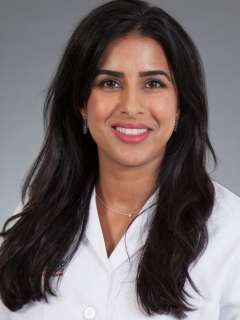
“The patients referred will all have respiratory symptoms, but the level of impairment can vary - some individuals may have an ongoing need for oxygen, while others may have more subtle symptoms,” she said.
Dr. Qadir said doctors are still figuring out what it will take for such patients to recover. She said time and avoiding complications are big components. Participants for the opera program are being referred from pulmonary rehabilitation, which works to increase strength and endurance as well as breathing retraining, which helps patients learn to maximize their lung capacities.
“When you’re working on strengthening the muscles involved in breathing, that requires an awareness of one’s own breathing pattern,” Dr. Qadir said. “I think these workshops will help with that.”
Dr. Qadir said she hopes the program will help participants with the anxiety that can arise when experiencing breathlessness, which can trigger frightening memories of their illness. The supportive, community aspect is a bonus of the program.
“It will foster this awareness of breathing that can help facilitate one’s recovery and hopefully do that in a way that associates breathing awareness with something positive rather than something stressful and life-threatening, in some cases.”
Wilson said participants must be medically cleared to participate. As for measuring the results, patients will be surveyed on their functional abilities before and after the program, such as how far they can walk or whether they need to rest when performing activities of daily living.
“It’s a fun way to continue to make progress but maybe also have a positive psychological impact,” Wilson said. “There’s such a feeling of isolation with these patients. This is like an automatic support group.”
Learn more about the UCLA Health Post-ICU Recovery Clinic.
Courtney Perkes is the author of this article.
